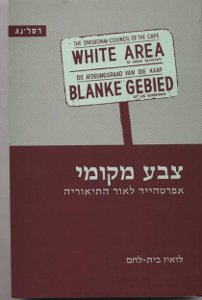Skin Tight
Louise Bethlehem (Unisa; Brill, 2010)

What is the role of literature in contexts of severe political oppression and resistance? Skin Tight: Apartheid Literary Culture and its Aftermath traces the responses to this question provided by the emergent paradigm of South African literary studies from the 1970s onwards. Embedded in the influential critical texts of the field, it claims, are hidden narratives—of land, race, gender, desire and embodiment. This volume explores these submerged dimensions of South African literary history and the influence they continue to exert well into the post-apartheid era. It suggests that significant continuities exist between late-apartheid and post-apartheid literary culture, and positions these against the interpretive horizon of South Africa’s Truth and Reconciliation Commission.
Skin Tight uses the tools of postcolonial theory and gender studies to deepen understanding of the relationship between the written and the ‘real’, between resistance and representation, between textual culture and the textuality of culture in a situation of deep political saturation. It has important lessons for readers interested in South African literature and culture, literary theory, cultural studies and gender.
Skin Tight: Apartheid Literary Culture and its Aftermath has recently appeared in Hebrew translation, see below
Reviews
Skin Tight has been the subject of much critical attention. For Dan Wylie, writing in English in Africa 36(2), 2009:
Louise Bethlehem, South African-born but now tenured at the Hebrew University in Jerusalem, has to be one of the sharpest intelligences working in Southern African literary studies today. This slender book is characteristically scintillating, dense with metatextual theory, and shot through with anger. It is a text upon metatexts: a series of coruscating snapshots of four or so key moments of literary critical discourse that emerged from the South African ‘lit-crit’ establishment during the apartheid years, and one following it (the TRC). It pretends neither to be a survey of the discipline, nor – somewhat disdainfully – to be supported by an empirical layering of evidence. Rather, it explores how the discursive structures and rhetoric of chosen literary critical texts have failed to enact the liberation to which they lay claim.
For the full review, see here
For Michael Chapman’s review, see here
For Louise Bethlehem’s response to Michael Chapman, see here
For Loren Kruger’s review, see here
For Michael Titlestad’s review, see here
Also published in the Imagined South Africa Series by Unisa:
Leon de Kock, Louise Bethlehem and Sonja Laden South Africa in the Global Imaginary (2004).
See online catalogueHebrew Translation
In 2011, Skin Tight: Apartheid Literary Culture and Its Aftermath was published in Hebrew by Resling Press, in Oded Wolkstein’s translation.
צבע מקומי: אפרטהייד לאור התיאוריה (רסלינג, 2011)
